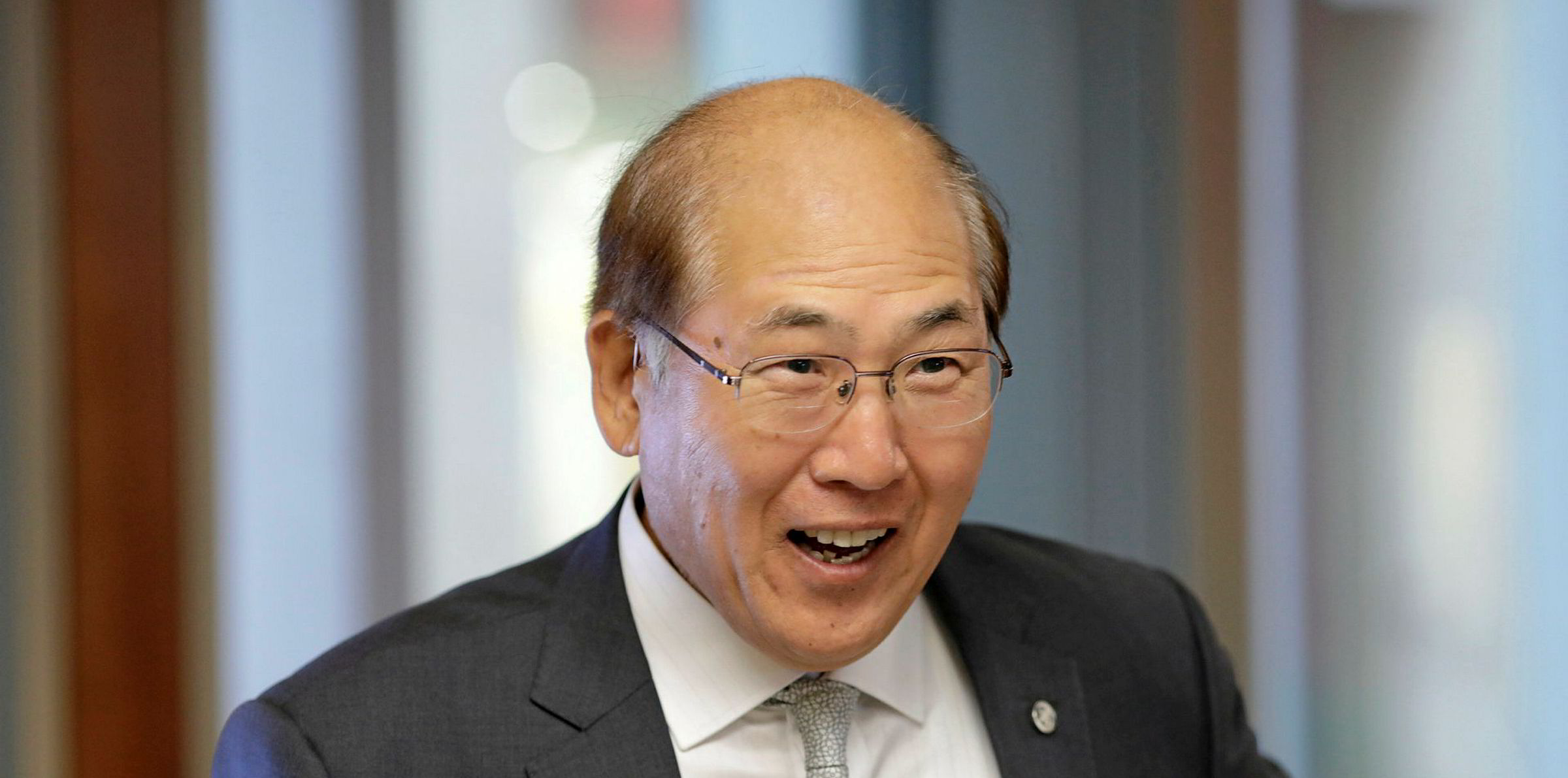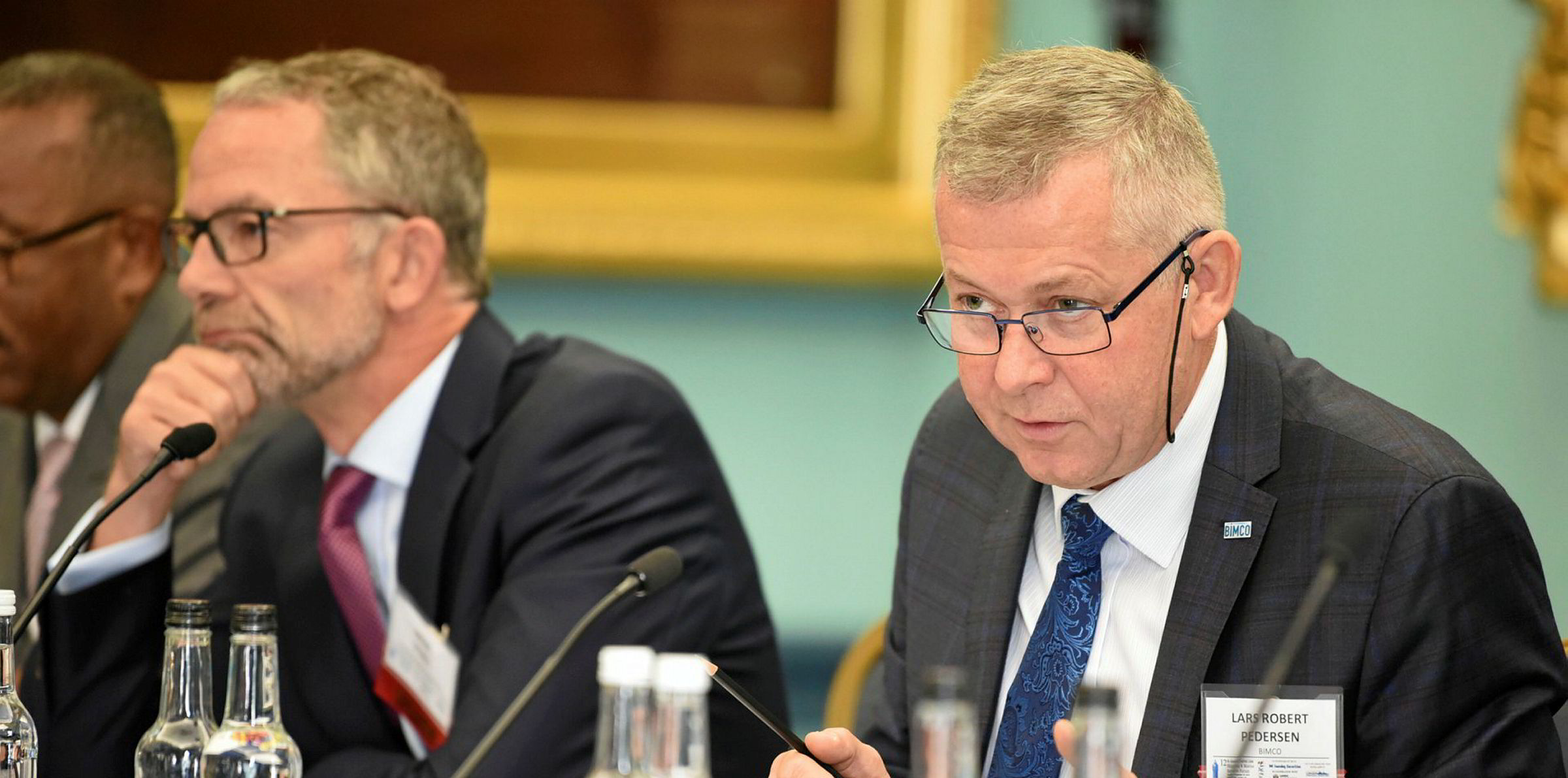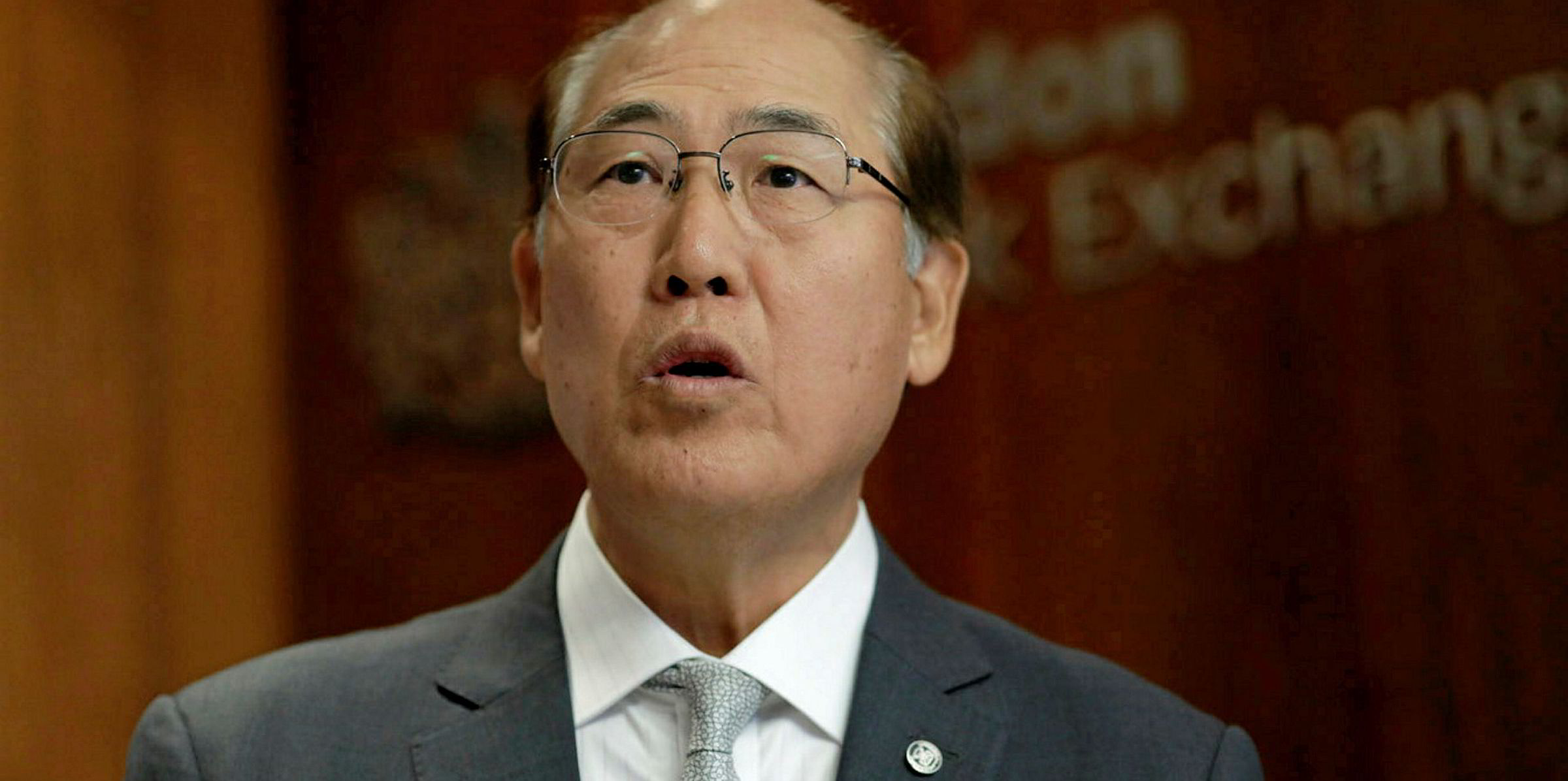International Maritime Organization secretary general Kitack Lim has emphasised the positives of new emissions reductions measures agreed by member states last week.
The South Korean executive told the TradeWinds Digital Forum on Tuesday that the new proposals are pioneering and powerful.
His comments come after shipping industry bodies, such as Bimco and Danish Shipping, criticised the measures as leaving many questions unanswered.
The J/5 deal at the IMO’s Intersessional Working Group on Reduction of GHG Emissions is aimed at helping owners reduce the carbon intensity of shipping by 40% by 2030.
The idea is to fuse an Energy Efficiency Existing Ship Index (EEXI) with the operational Carbon Intensity Indicator (CII).
Lim called this a "very exciting agreement".
He told the forum that under the carbon intensity element, ships will be classed from A to E, with those rated D and E having to carry out corrective actions.
Lim admitted that specific guidelines have still to be developed.
"We need more than 10 guidelines to be developed or updated," he said. Most of this will happen by the middle of next year, Lim added.
The industry will have a much clearer picture of policies to be introduced at that point, the secretary general said.
"I know some people or experts are not happy with progress by the IMO," Lim added.
"However, regarding the carbon measure, it is the first-ever IMO regulation in all conventions which will classify ships A to E, which can be utilised from a commercial point of view."
And he added: "This is a very, very powerful tool to push the decarbonisation policy in the future. I believe once we develop specific guidelines, it will be working very effectively."
Lim also praised all member states for coming to an agreement, despite their diverse economic conditions.
"It's not easy to reach agreement among the whole of the member states," Lim said.
Research vital
The secretary general views work on alternative fuels and new energy resources as the most important element for decarbonisation of shipping.
"That's why we have to intensify our research and development efforts for the future of our decarbonisation policies," he said.
Lim also told the forum about the IMO's "three-tier" plan to deal with the crew change crisis.
At the top level, the organisation is talking to the United Nations to develop global guidelines.
The next tier concerns improving bi-lateral communications with member states.
Lim said 69 member states are now allowing crew changes, out of a total of 112 surveyed by the IMO.
The third element of the plan is a focus on direct communication with local authorities.
Lim said he understands the difficulties administrations face.
"Each government has a very unprecedented situation," he said. "They are trying to handle the most immediate threat, it is natural."
He added: "However, we will strengthen our efforts to talk to member states."






